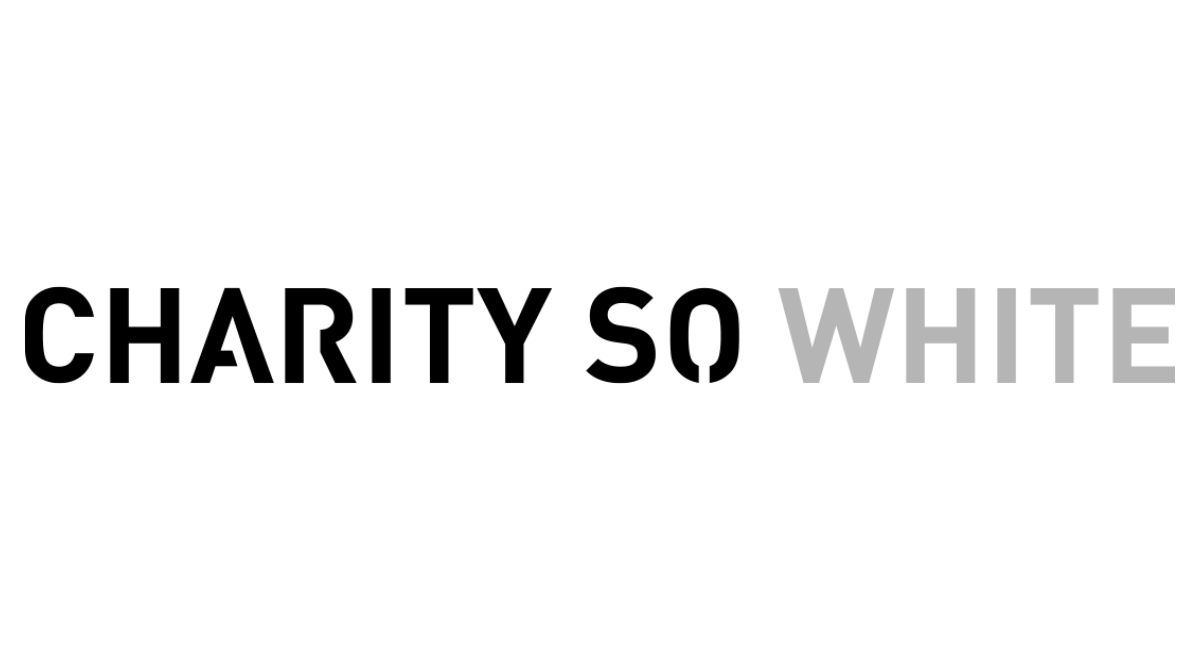#WeMove: Dreaming of an Anti-Racist Charity Sector
Runnymede invited CharitySoWhite to lead a future-thinking workshop at their inaugural We Move - A Race Equality & Migrants Rights Summit. We were part of 50 sessions focussed on how society can come together to harness opportunities for change and materially improve the lives and conditions of Global South communities in Britain.
As whiteness is a construct, we want to make clear that when we speak of minoritised ethnicities/Global South communities, we include those who are not privileged by the ideology of whiteness. This includes Gypsy, Roma & Traveller communities, Jewish folk, and British Muslims, whether they are white-presenting or not.
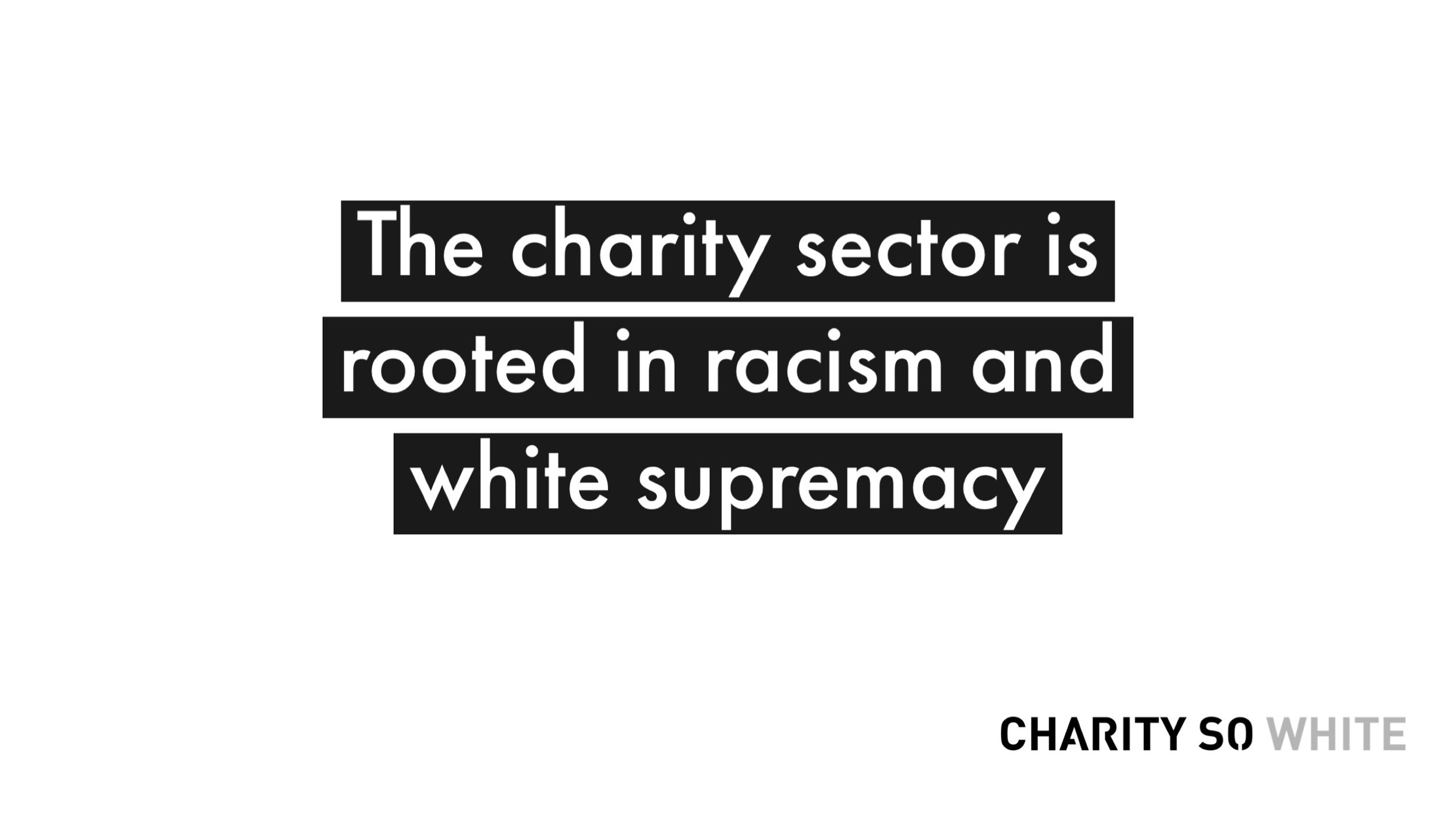
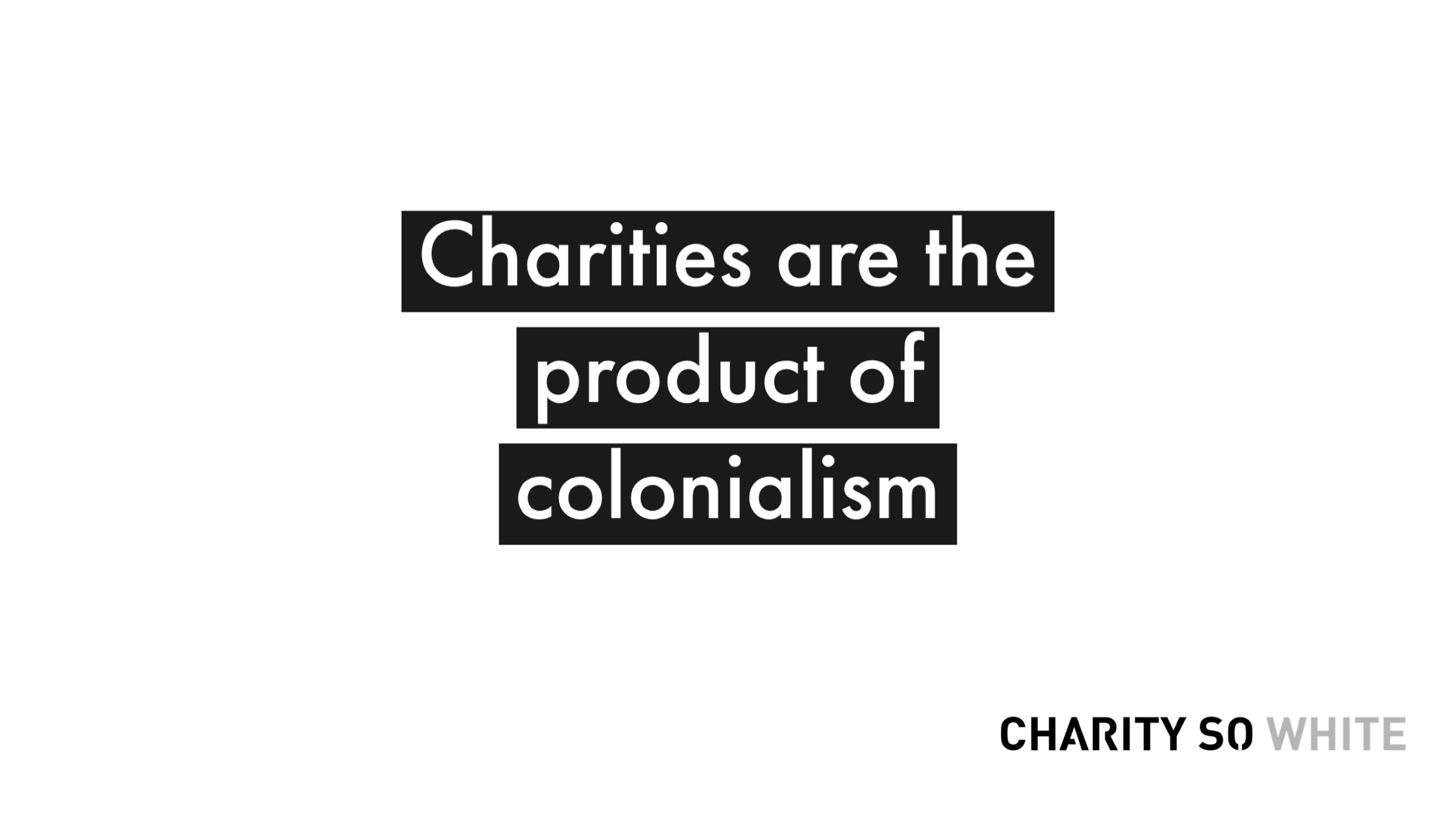

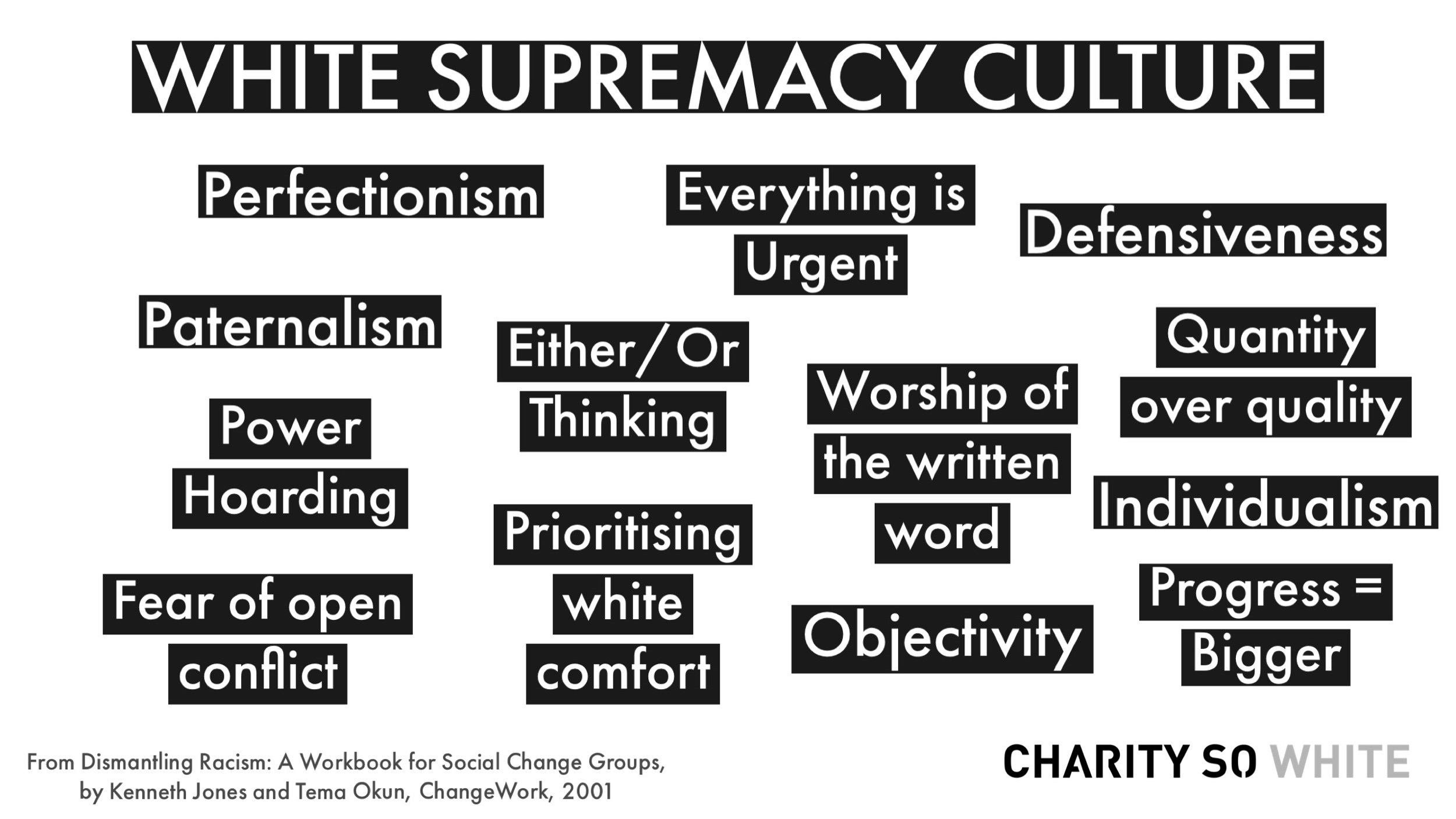
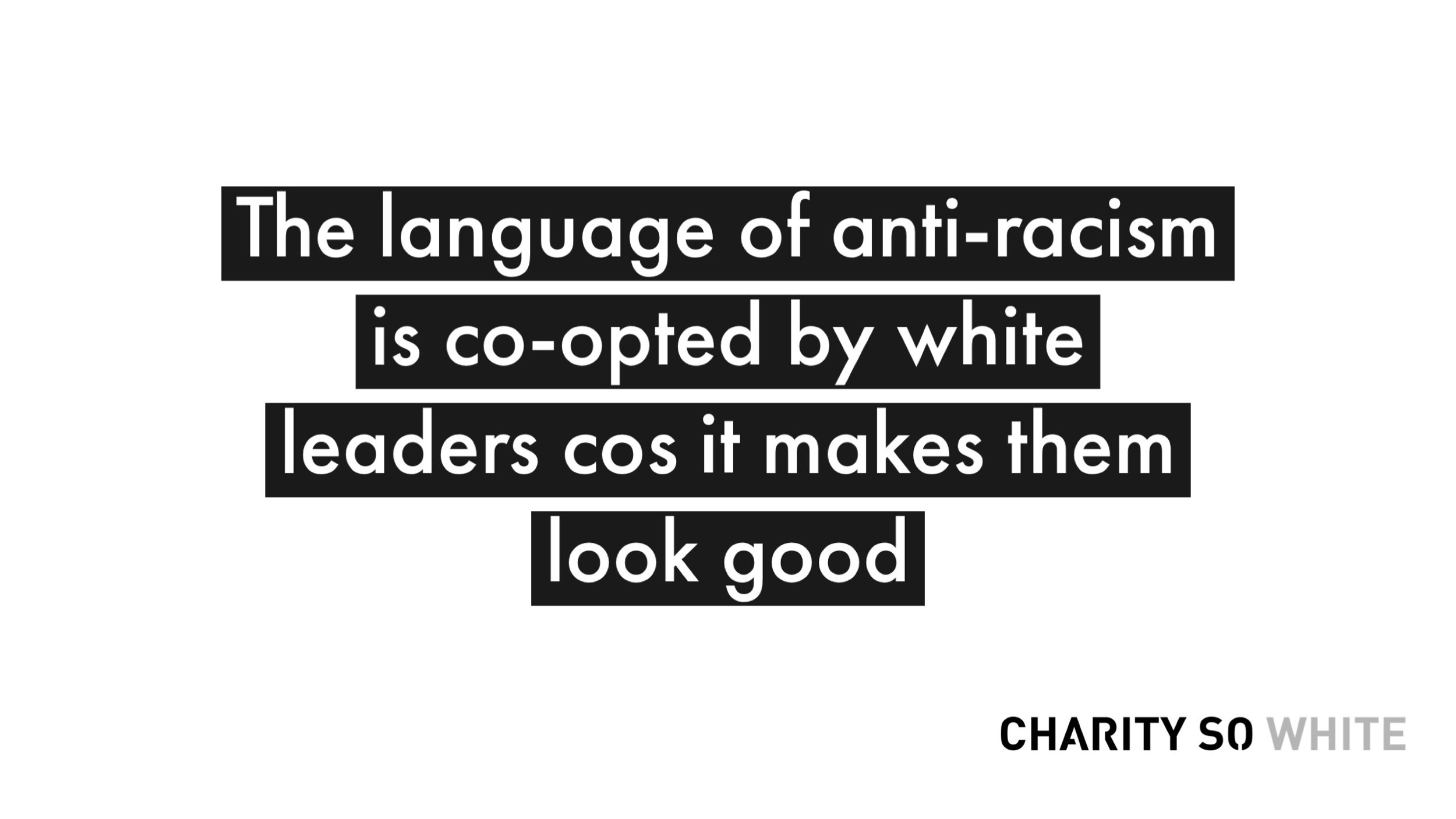
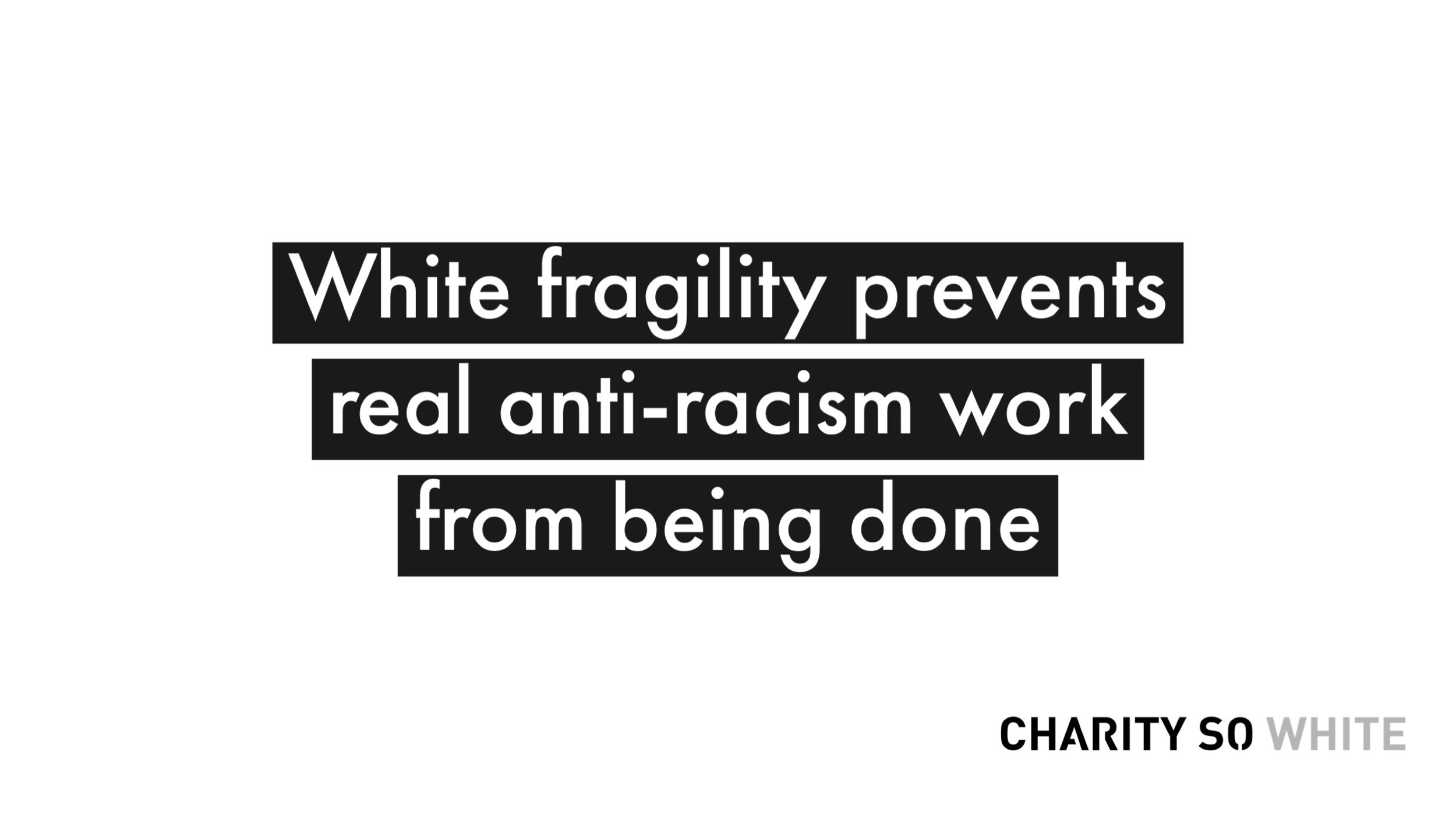
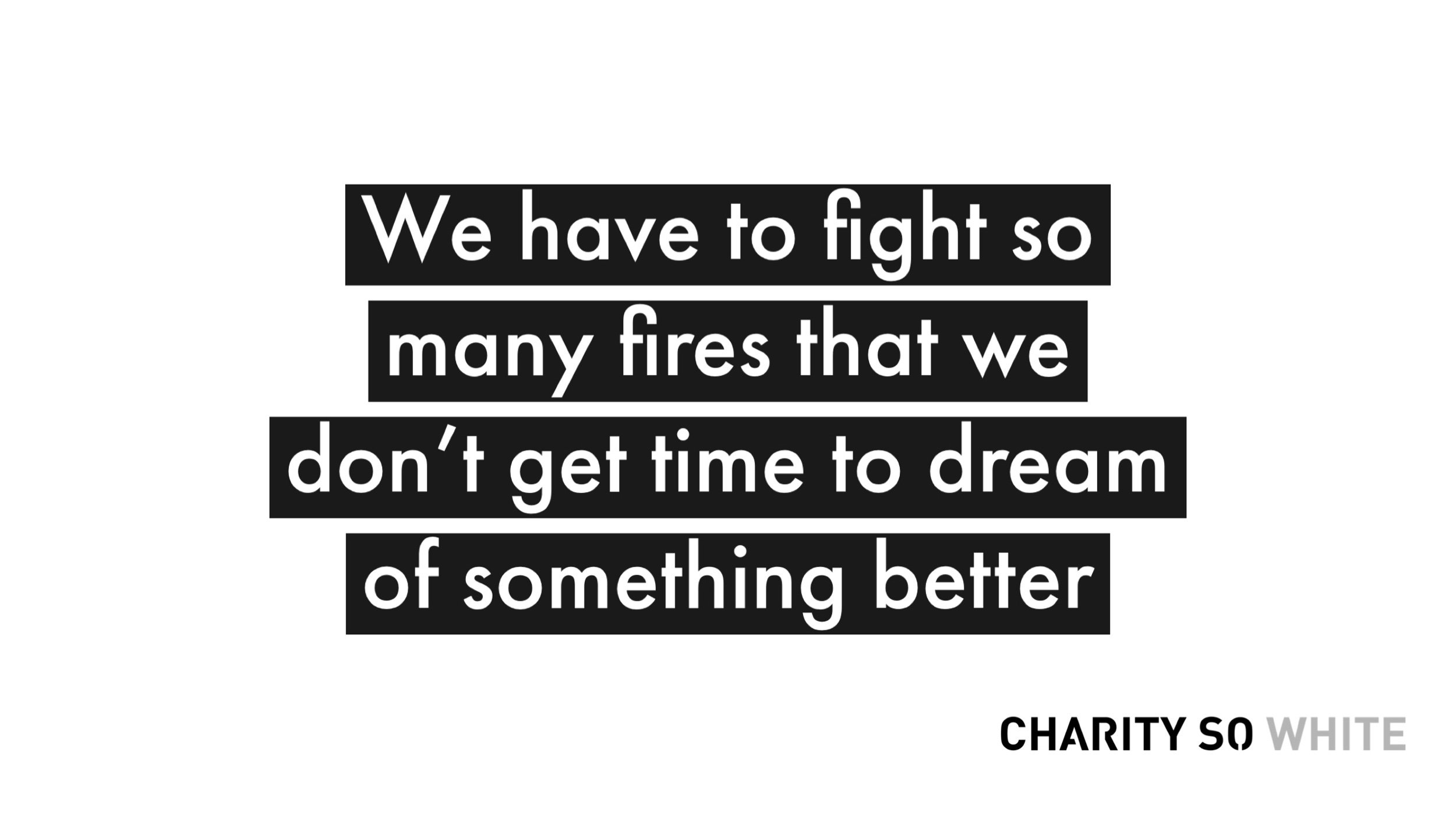
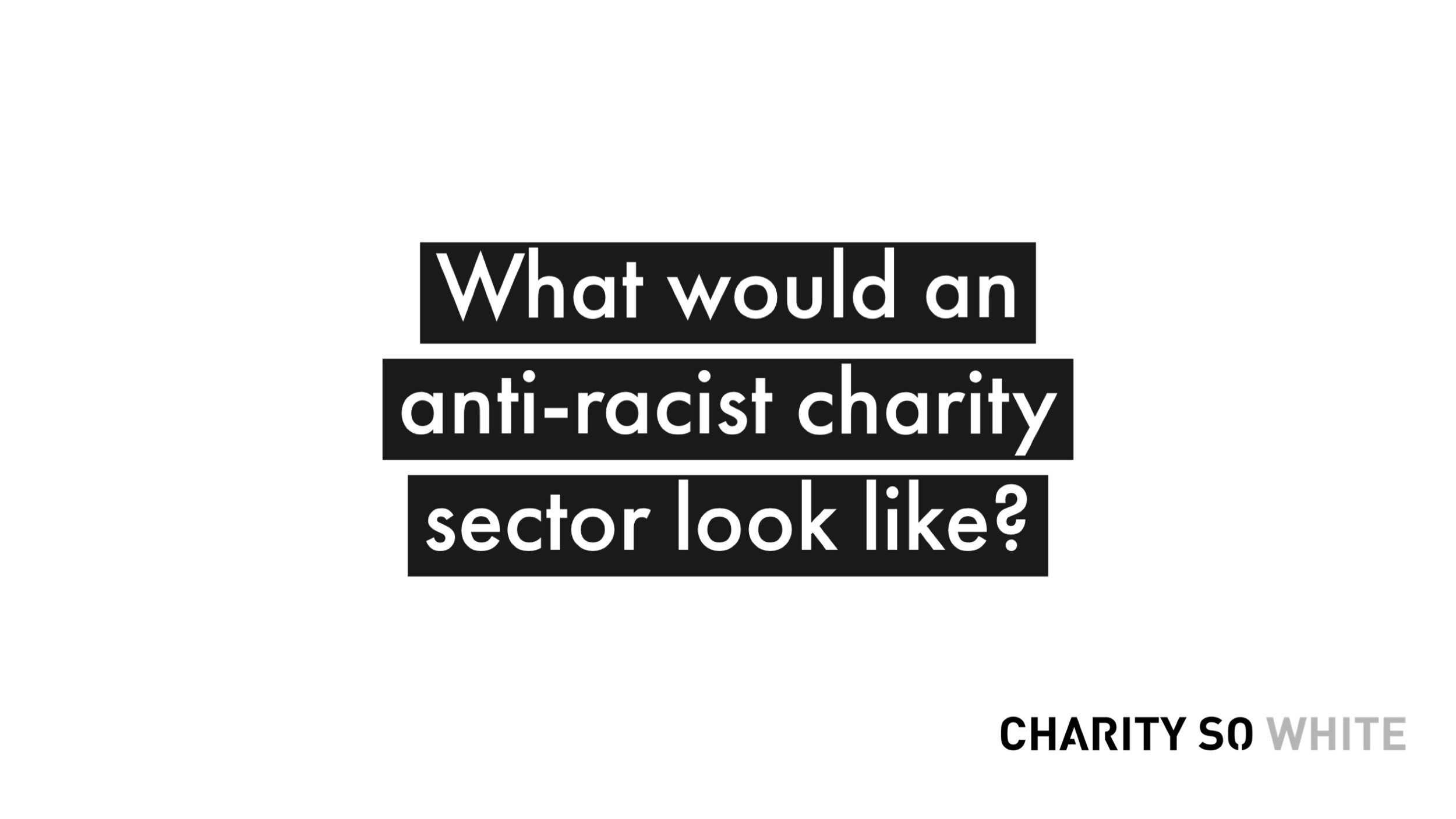
From white saviour narratives to all white leadership teams, the logics and structures of white supremacy is deeply rooted within the charity sector. Colonialism is the driver of organisational structures, our relationships with the communities we work with, what and who are considered valuable, data reporting, and every facet of what we do. This is by design, but it doesn't have to be this way.
The foundation of an anti-racist charity sector is dismantling white supremacy, and this session aimed to create the chance to dream about what this would look like, and build community with our shared hope.
We framed what white supremacy culture manifests as in the charity sector, referencing our experiences as well as the work of Tema Okun and Kenneth Jones, which we strongly encourage all to read and reflect on at whitesupremacyculture.info before reading the rest of this blog.
The characteristics of white supremacy culture - perfectionism, everything is urgent, defensiveness, paternalism, either/or thinking, worship of the written word, quantity over quality, power hoarding, fear of open conflict, prioritising white comfort, objectivity, progress = bigger.
We don’t debate that white supremacy culture exists - to meaningfully engage with our work we expect people to have this as their baseline understanding, and be committed to working from that point. If this is not your position, you are not a supporter of our cause, nor an ally - despite what you RT and hashtag.
The framing for the discussion groups were based on 3 core drivers of the sector: Money, Power, Relationships. Self-organised groups spent 10 minutes on each whiteboard, sharing their experiences and hopes for safe, supportive, anti-racist workplaces and practice. A summary of these thoughts are below.
“What would you want to see in anti-racist financial practice? Specifically looking at the responsibility and influence funders hold”
Currently, the money is there, but the proper distribution is not. Grassroots Global South-led organisations are not in competition with each other for funding, they are in competition with white supremacy. How would funding experiences be different if this was no longer the case?
The Status Nope: Power dynamics that give funders all control and no accountability
Reverse the dynamics so it is organisations that hold the power
Understand that money doesn't belong to funders - they are accountable to the people the money was extracted from through violent historical and ongoing exploitation
Funders, not fundees, will be scrutinised on their decisions and money management e.g. ringfencing campaign in 2020
Funders must prove why organisations should want their money - funding that is not aligned to values will not be accepted. Funders are questioned on their decision making e.g. why grants have been made to terrorist organisations, and must justify to their community
Baseline question asked to identify the distance between where the money originates and the funder’s apparent ethically-motivated outcomes. E.g. Chocolate companies with foundations that fund work for Black/Brown youth in the UK, yet the money comes from exploiting Black/Brown youth labour and wage theft in Global South countries. This interrogation is done in a way that is forward planning and thinking.
Much of this was inspired by Jess H̓áust̓i sharing the Rights Relations Collective work at BAMEOnline, where they speak on the Funder Engagement Framework and their Aunties Council. Read more here.
The Status Nope: Funders are accountable to nobody yet demand piles of evidence from everybody funded
Funders will report to the public and who they fund on how their money is impacting on communities - this is not data mined from organisations, this is research they conduct on their own.
The Status Nope: Funders want to fund ‘exciting’ projects with reportable outcomes and quantified impact, and pocket watch how it’s spent
Funding is given for organisational missions, not projects
Funding is unrestricted and multi-year with flexibility around deliverables and outcomes - this includes:
Core costs
Learning and testing that doesn’t require reporting
Communities are inherently trusted to spend the money - there is no paternalism that questions their decisions
Bring back Secret Millionaire
The Status Nope: Processes and practice are all inaccessible. Staff are paid and treated poorly so forced to leave.
Pay is set at a thriving wage - the wage at which they can enjoy their lives, rather than just live.
Staff retention and job security will be high because they are valued and looked after - there are no financial factors that force them out of the sector
Staff are paid equitably for the work they're doing, based on their personal circumstances and needs. There will be no wage gap for protected characteristics.
Funders will pay for bid-writing costs when bids are successful. This can be passed onto freelancers, or to the organisation.
All payments will include money for operational assistance and accessibility support. Assistance includes caring responsibilities, travel costs, subsistence, stationery etc. Accessibility includes all costs relating to meeting all needs to help people work safely and comfortably - this includes translators, interpreters, support scribes, physical accessibility, visual aids and design etc.
The Status Nope: Support offered to organisations by funders is another back pat for themselves
Ask what support organisations want and offer it, especially ensuring pro bono support is relevant, unrestricted, and actually accessible
The Status Nope: Participatory grant-making is an empty buzzword
Participatory grant-making is an embedded practice
Decision-making of who receives grants is made by a group of peers with both lived experience and relevant sector experience
Project design and support feeds into bid development, done through direct experience and planning for sustainability of the organisation
“What would soft power, hard power, and accountability look and operate like in an anti-racist sector?”
The power hoarding and gatekeeping by leadership teams that are structured on white supremacy reinforces paternalism and colonisation, and white saviour narratives. The concept of power is intangible to the many, while accountability is intangible to the few. Power is imagined, so how can the imagined become a better reality?
The Status Nope: “Charity” stems from Victorian values and is linked to colonialism, which embeds that whole mindset in the sector
Finding different ways of saying this and talking about the work. No more ‘beneficiaries’, ‘communities served’, ‘hard to reach groups’ etc.
The Status Nope: Conscience drives the sector - “we are good people, so we can’t be racist”. The desire to do good is exploited by the state
Desire to do good should not drive charities
Perceptions of ‘good’ are given from communities not institutions
Work to do ‘good’ is properly funded and paid for by the state
The Status Nope: Systems are all extractive and infantilising from the top down
Leadership should reflect the communities worked with
The language of power should adjust to who is being spoken to
Jargon and language of charity sector can be a barrier, make power more accessible by making the language more accessible
Ensure there is a fluid relationship between power and accountability
We don’t just need rigid structures of governance; we need operations to come with a more dynamic approach to accountability from the communities worked with and all parts of the system
The Status Nope: Accepted definitions of power value knowledge in finance, policy, etc and ignores the community
Community knowledge is valued and seen as powerful, while sector knowledge is operational
The Status Nope: Perceptions of power is heavily rewarded - the leader gets a big pay packet that shrinks as you go down the hierarchy
Reward and pay must be throughout the whole system, including in the communities being worked with
The Status Nope: The strings of power are attached to money - “Our hands are tied by our funders”
We need to challenge this notion and dismantle it, power must be based within the community - where it belongs
Funders demand organisations to do backflips, answer to them, behave like them etc.
All money and funds should be centred on fixing systemic injustice
How did we get to this place? How do we challenge that power dynamic?
Funders should give more freedom to the communities they fund
The Status Nope: Violent structures inherited from a ‘justice’ based civil society. The structures of power and institutional power aren’t relevant, challenged, or adequate. Lack of power creates deficits and needs that the charity sector then fills
We should be accountable to service users and community we work with
Fit-for-purpose charity commission and government
Create a world where people have the power - recognise the structural injustices that exist and work to change them
Sector must ensure the community can meet its own needs
Changing the structure of power:
International > National > Regional > Local - power decreases through these levels, how can this be changed so there is more power at local level
Bottom-up approach to power
Power to the grassroots
Flat structures in practice not theory that don’t recreate coloniser ideas of hierarchy
Democratic process to allocate money
The Status Nope: Internalised white supremacy and coloniser deficit thinking. Representation politics is trash - Black and Brown people doing the work of white supremacy.
How do we approach decolonising our minds in the charity sector? Who should lead these spaces?
Who should be investing time/resources in this?
How do we avoid having white people telling Black and Brown people to decolonise our minds?
Get real change in the leadership and boardrooms
Abolish tokenism and scapegoats
The Status Nope: ‘Accountability’ is a reaction to crisis
Accountability as a duty, pre-emptive honesty about things that have gone wrong with genuine apologies for the harm and acknowledgement of responsibility.
Mia Mingus’ Four Parts of Accountability
The Status Nope: Staff needs not a priority and prioritised according to hierarchy
Reward people’s work across the whole process, not just leaders
Ensure healthy work/life balance that is equitable and responsive
The Status Nope: “We encourage applications from diverse candidates”
Retire this transparent and empty term, and actually create workplaces that ‘diverse’ candidates are safe and comfortable to work in
Recruit from the communities being worked with
Value lived experience
Understand diversity as a multi-dimensional ideology that is not centred on cishet whiteness
The Status Nope: North vs South divide
Flip the narrative of Global North and Global South - remove the inherent value assigned to the North and its people
The Status Nope: White leaders represent the hoarding and holding of power
White leaders who have perpetuated harm must go
White leaders who have enabled harm must go
White leaders who don’t think they should go, must go
“What would the relationships between charities and communities served worked with be if the sector was anti-racist?”
Communities should not “just be grateful” for the work charities do. Charities should not expect constant gratitude and public displays of adoration from communities they work with. Charities should stop telling the myth that their fly in fly out approach to support is appreciated and necessary. The support is needed, the attitudes are not. How can this be realised?
The Status Nope: Everything is in silos
Intersectionality and interconnectedness as the basis of all work
Need to understand the impact of charity and communities relationships in the wider ecosystem
Charity money and the wider economic environment
Communities must be unified and protected from the weaponisation of drama caused by division between groups and issues
The Status Nope: Community expertise is devalued, until it’s time for extractive mining of lived experience and trauma/poverty porn
Primary research/focus groups - to better understand what communities want and need - this can’t be extractive and can be paid for communities to share their views
This needs to be connected to accountability to the communities of charities
Charities need to respect and trust the community expertise
Have more programming coming from by and for organisations and grassroots movements
The Status Nope: Charities accountable to nobody within communities they’re working with
Honesty, transparency, and integrity in all decision-making, consultation, and process
Reviews (regular) baked in so that work is iterative and continuously meeting potentially changing needs
More focus on awareness of privilege and positionality of charities and charity workers
Ensuring the communities feedback is at the top and USED
Putting lived experiences at the core of the work - with genuine involvement
Prioritising an Intimate understanding of lived experience and developing people's sense of self worth
Be open to and actually follow through with new ways of working that are based on the community being worked with
Measure and impact need to reflect what the community sees as success and impact
The Status Nope: Charities don’t design programmes based on sustainability to create need for them to stay in the areas
Bigger organisations must platform and handover to grassroots organisations
Create space for communities to organise - needs to be long-term with proper resourcing and investment
Community organising starts with the community
Capacity building in communities to create change
The Status Nope: Charities have a myopic focus on process and ‘learnings’ from previous work which they are determined to apply to everything because they desire the same outcome
Shift focus to balance both the process, not just the outcome
Communities must not be retraumatised
Focus on building a sense of self-worth within communities to forge real, deep, long-lasting, balanced relationships
Recognising and naming different agendas - do charities and communities and funders have the same agenda? Are there shared agendas? If not - create spaces for the dialogue to create a shared agenda
The Status Nope: Antiquated systems, roles, people, approaches are forced on communities that sabotages any meaningful progress. Nobody disrupts this because statues, awards, and 3 letters after their name are more important than people in the community.
Recognising that the old guard can sabotage new ideas and alternative ways of doing things, and getting rid of them
Prioritising plurality and diversity of voices
Interrogating recruitment systems and process, questioning who gets the jobs and why
No room for homogeneity
The Status Nope: Corrupt practice. Charity managers laundering or embezzling money; wielding power tactics for tenders; forcing Black and Brown Racialised Groups into competition for crumbs.
Power lies with communities not charities
Connectedness of Global South across communities and charities to foster trust and integrity
Full transparency and accountability to communities
These points were the result of half an hour of conversation in a room full of minds who want to work in a sector that is anti-racist in practice, rather than performative statement. But the current manifestations of money, power, and relationships are purposefully blocking this from becoming a reality. Emergency funds and diversity hires are not enough - we demand structural change and a return of all that has been appropriated and stolen.
An anti-racist charity sector is very possible, despite what we have been indoctrinated to believe. While the discussion was powerful to hear, it was far more valuable to experience the building of community and shared understanding that this dream of a sector they are proud and safe to work in is within reach.
We asked each participant to continue building with each other by reflecting on the session with somebody they haven’t met before, and to think of an action they can take between now and the end of the year to move their organisation closer to this vision.
We don’t claim to have the solutions or perfect roadmap to get there. We just have the will to free ourselves and our communities. The sector has the means, but that won’t be forever. We look forward to hosting more of these conversations in future and building a sector that truly takes the lead in rooting out racism.
Note: This content is not to be reproduced without express requests made to CharitySoWhite. This content should not be seen as an action plan or roadmap for organisations that have failed to live up to their anti-racism statements - this is the labour and lived experience of people from or in great support of the Global South, and anything that seeks to build on this must be paid work.
Resources:
White Supremacy Culture by Tema Okun - Learn about the characteristics of white supremacy culture and about different ways of developing workplace culture.
#BAMEOnline Conference - What started off as a fundraising conference with an anti-racist twist has turned into a valuable space for radical ideas on how to do real anti-racism work in the charity sector. You can watch recordings of the 2022 conference by buying a pay what you can ticket. We recommend watching our very own Yasmin Mahmoudi chair a session on labour rights and exploitation in the charity sector in We Still Need To Talk About the Charity Industrial Complex.
#FundingSoWhite - Recording of an event from April 2021 where we brought together white leaders in the funding space to share their personal and professional journeys towards racial equity and justice.
